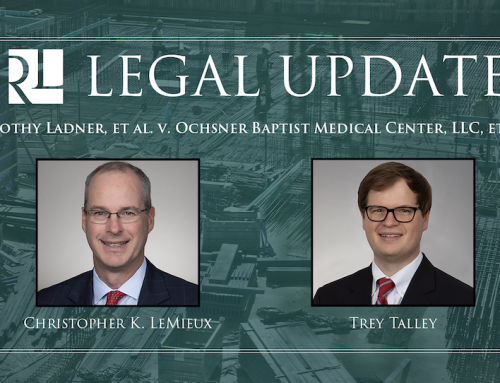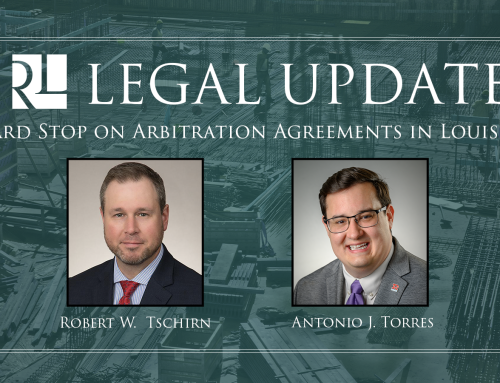 Louisiana Supreme Court Settles Circuit Split on Time for Filing Claims Related to Contractual Indemnification in Bennett v. DEMCO Energy Services
Louisiana Supreme Court Settles Circuit Split on Time for Filing Claims Related to Contractual Indemnification in Bennett v. DEMCO Energy Services
Authors: Christopher K. LeMieux and Hannah Marler
In the recent case of Bennett v. DEMCO Energy Services, the Louisiana Supreme Court considered whether a cause of action for contractual indemnity is premature when asserted before a judicial finding of liability or loss on behalf of the indemnitor. The Louisiana Supreme Court considered this question in the context of a personal injury case wherein a plaintiff sued a telecommunications company and its maintenance subcontractor for injuries caused by a downed telecommunications line. The maintenance contract between the telecommunications company contained a defense and indemnity clause requiring the subcontractor to both defend and indemnify the telecommunications company for claims arising from the subcontractor’s work. After the plaintiff filed suit against both entities, the telecommunications company filed a crossclaim against the subcontractor for both defense and indemnity under the contract. In response, the subcontractor filed an exception of prematurity and argued that “without a finding of liability or a judgment, the claim for indemnity has not accrued and is therefore premature.” The exception was ultimately denied by the trial court. However, the First Circuit overturned the trial court’s ruling and granted the exception citing Suire, which has long held that there can be no duty to defend and indemnify a party unless and until there is a finding of liability.
In Bennett, the Louisiana Supreme Court overturned the precedent set by Suire and held, “a claim for indemnity raised during the pendency of the litigation and before a finding of liability is not premature.” The Court reasoned that a claim for defense and indemnity comports with what is intended by the Louisiana Code of Civil Procedure for third party claims. Further, to the extent that the claims for defense and indemnity arise out of the same cause of action asserted in a claim, the claims should be considered to avoid wasting judicial resources and promote judicial economy. The Louisiana Supreme Court has now made abundantly clear that its ruling in Bennett is intended to overrule and prior case law to the contrary.
This ruling settled a long-standing split in the appellate circuits and has serious implications for parties to construction contracts seeking defense and indemnity. While it was previously permissible to assert those claims in a separate suit after a determination of liability, the failure to assert those claims for defense and indemnity may now waive those claims for failure to assert a compulsory reconventional demand or crossclaim. Claimants with contractual provisions related to defense and indemnity should consider the Bennett precedent carefully when considering which claims to pursue in litigation.



